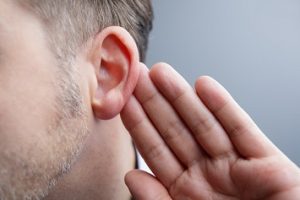We can’t say this loudly enough: occupational noise may be affecting your workers’ health and safety. Obviously, occupational noise exposures can lead to bilateral hearing loss—but did you know that noise exposure has other potentially serious effects on workers’ health and safety?

Here’s a rundown of all the reasons you should get workplace noise levels under control.
Noise and Workplace Safety
Controlling occupational noise will benefit your workers and your workplace in ways that go far beyond hearing conservation. Excess noise can be contributing to accidents and hazards in your workplace by:
- Making it harder to communicate. Workers in a noisy environment may have trouble communicating with one another or hearing emergency signals, especially if they are already suffering from damaged hearing.
- Masking important sounds. It is often possible to identify a piece of malfunctioning equipment by the way that it sounds while it’s running—but not in workplaces that are excessively noisy. Sound can carry valuable information, but if workers can’t hear clearly, they might miss clues that would allow them to prevent jams or breakdowns.
- Making job tasks more difficult. Although routine tasks are not usually affected, complex tasks become progressively more difficult as noise levels increase. Noise affects concentration and stress levels. Intermittent, unpredictable noise is the worst when it comes to getting the job done safely.
- Distracting workers. Unexpected, sudden, or intense noise may distract equipment operators at a crucial moment, increasing accident risk.
Noise and Worker Health
The evidence is mounting that long-term exposure to excess noise can be bad for your health. Not all noise exposures occur in the workplace, of course—but the workplace is one of the most common sources of long-term excess exposures. Health effects of noise include:
Increased risk of heart disease. A persistently noisy workplace more than doubles an employee’s risk of serious heart disease, according to one study of more than 6,000 workers. Workers—especially those under age 50—in persistently noisy workplaces were found to be two to three times as likely to have serious heart problems as their peers in quiet workplaces.
Increased cancer risk. Exposure to noise in excess of 80 decibels sharply increases an individual’s risk of developing an acoustic neuroma—a benign tumor that forms along the nerve that connects the ear to the brain. It can cause hearing loss, ringing in the ears, and balance problems. Individuals at highest risk are those in the music industry as well as those exposed to machine noise, power tools, and construction noise.
Increased risk of damage to an unborn child. Unborn children whose mothers are exposed to excess levels of noise—especially at low frequencies—are at increased risk of hearing loss.
Increased stress levels. Noise exposure increases the release of chemicals in the body that are related to stress, and chronic stress contributes to many health issues, including increased fatigue and aggression, sleep disturbances, and a depressed immune response.
By addressing occupational noise, you’ll help prevent far more problems in safety, production, and employee health than just noise-induced hearing loss.
